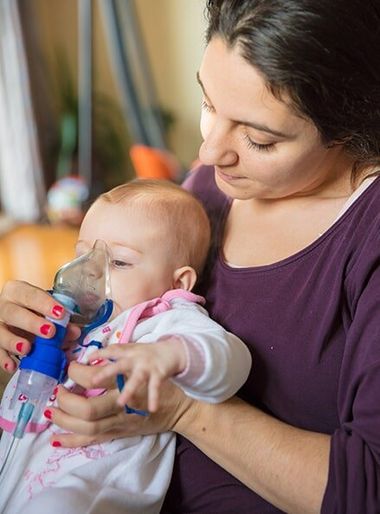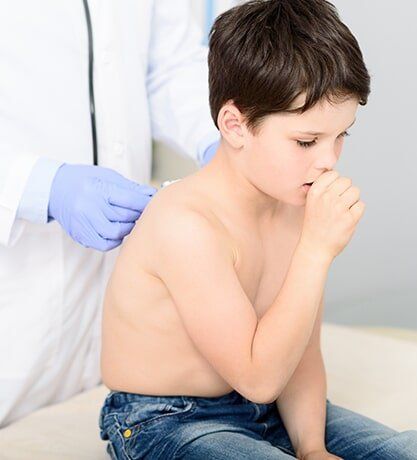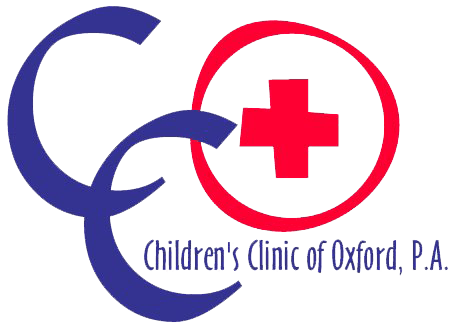Health Concerns in Oxford, PA
RSV
Respiratory Syncytial Virus
Respiratory Syncytial Virus, known as RSV, is a common, highly contagious pathogen, which causes disease during the fall and winter months. It is spread by contact with respiratory secretions from an infected person.
Children who are born prematurely or who have lung problems are at particular risk of developing this disease. RSV symptoms include coughing and sneezing but can also include pneumonia, bronchiolitis, an infection in the small breathing tubes of the lungs, or apnea, which are pauses in breathing.
The spread of RSV is prevented by simple measures such as washing your hands before contact with baby; avoid exposing baby to people who have colds, avoiding crowded areas, and not smoking in the home. Babies at higher risk of developing infection may receive an injection of a medication called Synagis.
Your child's doctor can tell you if your child would benefit from receiving Synagis. Synagis is administered monthly during the peak RSV season from October to April. It is important that your child to receive this medication monthly to help avoid RSV, it's symptoms, and possible hospitalization.
Respiratory Syncytial Virus, known as RSV, is a common, highly contagious pathogen, which causes disease during the fall and winter months. It is spread by contact with respiratory secretions from an infected person.
Children who are born prematurely or who have lung problems are at particular risk of developing this disease. RSV symptoms include coughing and sneezing but can also include pneumonia, bronchiolitis, an infection in the small breathing tubes of the lungs, or apnea, which are pauses in breathing.
The spread of RSV is prevented by simple measures such as washing your hands before contact with baby; avoid exposing baby to people who have colds, avoiding crowded areas, and not smoking in the home. Babies at higher risk of developing infection may receive an injection of a medication called Synagis.
Your child's doctor can tell you if your child would benefit from receiving Synagis. Synagis is administered monthly during the peak RSV season from October to April. It is important that your child to receive this medication monthly to help avoid RSV, it's symptoms, and possible hospitalization.

Rotavirus
According to Nelson Textbook of Pediatrics, diarrhea is probably the leading cause of childhood mortality in the world. Rotavirus is just one of the organisms that can cause childhood diarrhea. Even though Rotavirus is more common in winter months, we are seeing many cases of this condition in our clinic over the last month.
Some of the signs and symptoms associated with Rotavirus are as follows:
• Fever and vomiting followed by watery stools
Also, children will often experience a loss of appetite for one to two days. The child should be encouraged to take liquids in order to avoid dehydration. Special fluids, such as Pedialyte, are used to replenish lost fluids.
Some of the signs and symptoms associated with Rotavirus are as follows:
• Fever and vomiting followed by watery stools
Also, children will often experience a loss of appetite for one to two days. The child should be encouraged to take liquids in order to avoid dehydration. Special fluids, such as Pedialyte, are used to replenish lost fluids.
Treatment
Our physicians recommend a gradual return to a normal diet. Foods such as regular crackers, animal crackers, and vanilla wafers can be given as the child is able to tolerate solids again. Parents should consider bringing the child to the clinic if the child is not responding to these measures.
Prevention
The best prevention of Rotavirus is good hygiene. Parents and childcare providers should wash their hands after handling diapers. Older children should wash their hands after going to the bathroom.
Prevention
The best prevention of Rotavirus is good hygiene. Parents and childcare providers should wash their hands after handling diapers. Older children should wash their hands after going to the bathroom.
Reactive Airway Disease (RAD)
Wheezing
Treatment
Treatment varies with the severity of the episode. Some treatment options include breathing treatments in the office, continued breathing treatments at home, oral or other medications, or hospitalization for severe RAD.
Increased number of children are being seen in the clinic with symptoms of Reactive Airway Disease (RAD) or wheezing. These children are of varying ages with or without a previous history of a wheezing episode.
Some of the signs and symptoms associated with RAD are as follows:
Some of the signs and symptoms associated with RAD are as follows:
- high-pitched whistling sound on exhalation
- rapid respirations
- cough
- chest tightness/difficulty breathing
- sometimes associated with runny nose and sneezing

Call the Doctor
Respiratory infections, usually viral in nature, cause most attacks. These attacks can also be caused by allergens found in the environment such as smoke, pets, or pollen. RAD is best diagnosed by your child's physician. If you feel that your child is exhibiting any of the symptoms listed above, please call to speak with one of our nurses.








